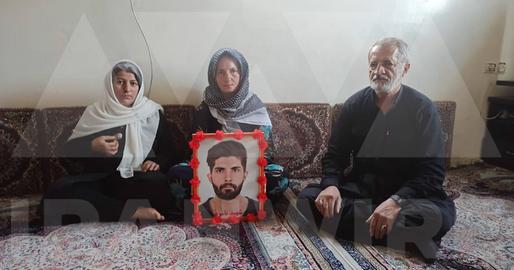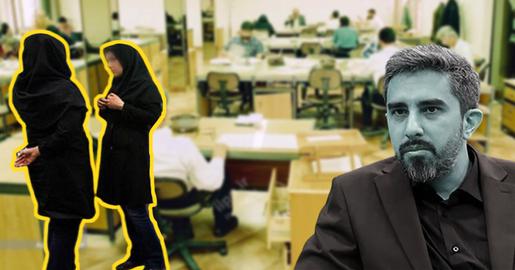Ashraf Rifi, Lebanon’s former justice minister and one-time head of the country’s security forces, has told IranWire that the French government had worked to bring about a new government in Lebanon, measures that had included discussion with Iranian officials and Hezbollah. The talks, Rifi said, may well result in an outcome that is acceptable to Iran while reducing its influence in the country and the wider region.
IranWire secured an interview with Rifi, but was not able to confirm the details with the French government, or other officials mentioned in this report.
French President Emmanuel Macron traveled to Lebanon shortly after the massive explosion in Beirut port on August 4, which killed 191 and wounded 6,000. Dozens of people are still missing. At the time, he was also in discussions with Iran-backed Hezbollah, and, according to Rifi, helped broker a deal for the formation of a new Lebanese government and aid to the country in exchange for remaining silent about the group’s access to some weapons.
In addition to the loss of life and injuries and the large number of people who remain homeless, the devastating blast caused massive damage and losses estimated at almost US$15 billion according to official figures, which have yet to be finalized. The explosion happened three days before the final verdict was to be announced regarding the assassination of former Prime Minister Rafik Hariri, who was killed in 2005.
Despite Hezbollah objections to international organizations' involvement in the aftermath of the explosion, it remained quiet on the US FBI’s role in investigations.
Former justice minister Rifi described the Beirut tragedy as "a genocide and a crime against humanity." At the same time, he referred to Hezbollah as being "weakened" as a result of the explosion, unable to hold on to the power it had previously commanded — with specific regard to tragedy, but also in general. Now, Rifi said, Hezbollah was in no position to object to FBI interference or French involvement in investigations, even on a "technical" level.
Traces of Acid Used as “Rocket Fuel”
Reporting on the latest findings about the explosion, Rifi said, ”The investigation teams found traces of four types of acid. According to chemists, these acids are used with ammonium nitrate as rocket fuel, which reinforces the theory that Hezbollah owned the substance that led to the explosion at the port, especially since several countries, including Germany, Bolivia, Thailand, and Kuwait, all found cells affiliated with Hezbollah in possession of the same substance."
Rifi went on to say that Hezbollah operates a security point at Beirut Port known as the Fatima Gate, which withdraws goods from the port for merchants for $5,000. According to him, Hezbollah would be the only group capable of bringing "any prohibited materials” in and out of the port.
Rifi explained that, in light of his own assessment of the security situation surrounding the Beirut explosion, ammonium nitrate would not have caused such an explosion without an external contributing catalyst. He did not rule out, however, that an Israeli military strike on the port might have led to the explosion, and the magnitude of the explosion might have led Israel to refrain from admitting it had bombed the port, which would have put it in an extremely embarrassing position before the international community.
Rifi denied that the ammonium nitrate could have entered Beirut Port during his tenure as Director General of Internal Security Forces (2005 to 2013), pointing out that the Internal Security Forces did not interfere at all in the port's business and that he retired at the end of 2013, which he said was prior to the entry of such substances into Beirut Port.
Decline in Iranian Influence
Rifi predicted a decline in Iran’s influence in Lebanon, and in the wider region. He also expressed his wish for Prime Minister-designate Mustafa Adeeb to form a government that "represents him and is not based on quotas or distributing positions [between power-players]."
Rifi also emphasized the significance of the International Monetary Fund's agreement to offer financial assistance to help the country recover from its economic crisis if Lebanon halted illegal crossings with Syria. Responding to Hezbollah Secretary-General Hassan Nasrallah’s invitation to Lebanese parties to engage in dialogue with the Syrian government, Rifi pointed out that the Syrian regime is currently the weakest player in this arena. He said it was not possible for Lebanon to enter into dialogue with Rafik Hariri's assassins, and said it was worth remembering that a number of opponents of the Syrian regime reside in Lebanon.


























comments